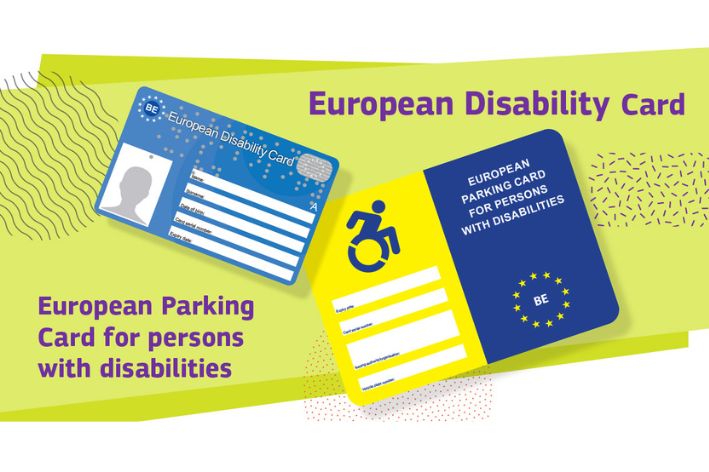Negotiators from the European Parliament and the Council reached a provisional agreement on the EU Disability Card and the EU Parking Card for persons with disabilities. The directive aims to make sure that, when travelling for a short period, persons with disabilities have equal access to preferential conditions, such as reduced or zero entry fees, priority access and access to reserved parking.
Both cards will grant card holders, as well as the persons accompanying them and assistance animals, access to most of the same conditions as national card holders.
The European Disability Card will be issued in physical format and, when available, in digital format, and will be issued and renewed free of charge. Depending on the country, costs could be charged for loss and damaging the card. Persons with disabilities that need more assistance or support or that are entitled to support by a personal assistant will be able to add the letter “A” to their card.
The European Parking Card for persons with disabilities will be issued in physical format. EU countries are encouraged to also issue the card in a digital format, and may choose to charge a fee for the administrative costs of issuing and renewing the card. Both cards will have to be issued within ninety days, except in cases when longer medical checks are required.
The new rules will only apply for short stays, with an exception for disability card holders that move to another member state for a mobility programme, such as Erasmus+.
The directive demands EU countries and the Commission raise citizens’ awareness about the European Disability Card and the European Parking Card, including by setting up a central European website. This website will be linked with national websites accessible for persons with disabilities, containing information on how to obtain, use and renew the cards and information on preferential conditions.
The agreed text will now have to be formally adopted by both the European Parliament and the Council to enter into force. The text is expected to be put to a vote during the April plenary session of the Parliament.
